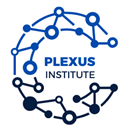 A New Book from Plexus
A New Book from Plexus
Unexpected Gifts: Solve Tough Problems with Adaptive Positive Deviance
Is your community struggling with overwhelming obstacles? Do community members have clashing beliefs, fractious rivalries or cultural incompatibilities? Is there dissension about deployment of scarce resources? Does your organization face barriers that threaten its immediate survival and sustainable future in an uncertain world?
Adaptive Positive Deviance offers a powerful way to engage the attention and energies of the very people who know the challenges and often possess potential solutions. APD won’t banish every problem but it’s a great beginning, and this book guides you through the steps to successfully launch an APD project.
Unexpected Gifts: Solve Tough Problems with Adaptive Positive Deviance, a new Plexus Institute book, combines insights from complexity science theory and the understanding of systems with practical examples of how APD has been applied in multiple fields. It traces the origin of the Positive Deviance work of Jerry and Monique Sternin in the rice fields of Vietnam to social change initiatives around the world and in U.S. corporations and institutions. The book combines case studies of APD work in health care, education and organizational improvement, and detailed outlines of the iterative processes that help people define their most pressing problems and start to address them .
The authors of Unexpected Gifts bring their unique professional perspective, educational expertise, and diverse experience facilitating organizational and community change. They are Sharon Benjamin, Denise Easton, Laura Gardner, Irene McHenry, Prucia Buscell, and designer David Hutchens.
The book shows how APD processes provide opportunities that people from different communities can use to work through difficult issues. It offers facilitators new ways to seek and encourage the talents and energy of others and to support emerging leadership. APD offers practitioners and community members a new lens to recognize deficiencies without the negative focus that often hides resources and obscures routes to better outcomes. Even when people facing a problem know the “What”, they need to explore the “How” and then the Why, When, Where, and Who to clarify context and develop deeper insights into problems and potential solutions. Plexus Network member and evaluation scholar Michael Quinn Patton reminds us that these five Ws plus one are Kipling’s six servants of honest inquiry. And the opportunities to find and use them are all around us.
If you are a consultant, facilitator, change agent or someone who wants to make positive changes in an organizations or community, you’ll find the stories and practical skills that inspire change in this book.
Explore our curated resources on Adpative Positive Deviance. New workshops and learning opportunities will be listed in our Events calendar.

 A New Book from Plexus
A New Book from Plexus